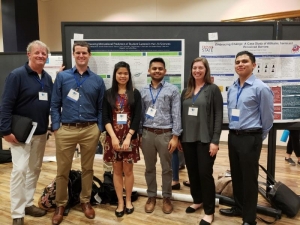University of New Hampshire is Now Accepting Applications for the Postdoctoral Diversity and Innovation Scholars Program
A description of the program and the (5 postdoc cohort of diverse scholars each year) appears on their website at www.unh.edu/diverse-postdoc. A minimum salary of $50,000 (depending on discipline) and a professional development program and professional development fund are also provided. On the website you will find a PDF electronic card that describes the range of professional development opportunities which in particular includes a research mentoring network, participation in in-depth faculty development programs and the opportunity during the second postdoctoral year to apply for a tenure track faculty openings. They have postdoctoral opening in seven department across three colleges including the College of Life Sciences and Agriculture, the College of Health and Human Services and the Peter T. Paul College of Business and Economics.
For questions please contact patricia.walsh@unh.edu who can set up an appointment with either Julie Williams, PhD senior vice provost or Leslie Couse, PhD executive director in the Office of Engagement & Faculty Development.
Application Deadline: March 29, 2019

 The Society for the Advancement of Biology Education Research (SABERI, holds an annual west coast regional conference for education researcher in biology. UCLA was well represented at this year’s conference at UC Irvine, January 19th – 20th, with presentations by:
The Society for the Advancement of Biology Education Research (SABERI, holds an annual west coast regional conference for education researcher in biology. UCLA was well represented at this year’s conference at UC Irvine, January 19th – 20th, with presentations by: